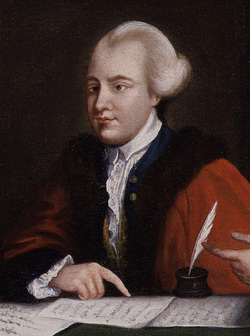
The right of the people to be secure in their persons, houses, papers, and effects, against unreasonable searches and seizures, shall not be violated, and no warrants shall issue, but upon probable cause, supported by oath or affirmation, and particularly describing the place to be searched, and the persons or things to be seized.
ike many other areas of American law, the Fourth Amendment finds its roots in English legal doctrine. Sir Edward Coke, in Semayne's case (1604), famously stated: "The house of every one is to him as his castle and fortress, as well for his defence against injury and violence as for his repose." Semayne's Case acknowledged that the King did not have unbridled authority to intrude on his subjects' dwellings but recognized that government agents were permitted to conduct searches and seizures under certain conditions when their purpose was lawful and a warrant had been obtained.
The 1760s saw a growth in the intensity of litigation against state officers, who, using general warrants, conducted raids in search of materials relating to John Wilkes' publications attacking both government policies and the King himself. The most famous of these cases involved John Entick, whose home was forcibly entered by the King's Messenger Nathan Carrington, along with others, pursuant to a warrant issued by George Montagu-Dunk, 2nd Earl of Halifax authorizing them “to make strict and diligent search for . . . the author, or one concerned in the writing of several weekly very seditious papers intitled, ‘The Monitor or British Freeholder, No 257, 357, 358, 360, 373, 376, 378, and 380,’″ and seized printed charts, pamphlets and other materials. In the resulting case, Entick v. Carrington (1765), Charles Pratt, 1st Earl Camden ruled that the search and seizure was unlawful as the warrant authorized the seizure of all of Entick's papers, not just the criminal ones and the warrant lacked probable cause to even justify the search. Entick established the English precedent that the executive is limited in intruding on private property by common law.
ike many other areas of American law, the Fourth Amendment finds its roots in English legal doctrine. Sir Edward Coke, in Semayne's case (1604), famously stated: "The house of every one is to him as his castle and fortress, as well for his defence against injury and violence as for his repose." Semayne's Case acknowledged that the King did not have unbridled authority to intrude on his subjects' dwellings but recognized that government agents were permitted to conduct searches and seizures under certain conditions when their purpose was lawful and a warrant had been obtained.
The 1760s saw a growth in the intensity of litigation against state officers, who, using general warrants, conducted raids in search of materials relating to John Wilkes' publications attacking both government policies and the King himself. The most famous of these cases involved John Entick, whose home was forcibly entered by the King's Messenger Nathan Carrington, along with others, pursuant to a warrant issued by George Montagu-Dunk, 2nd Earl of Halifax authorizing them “to make strict and diligent search for . . . the author, or one concerned in the writing of several weekly very seditious papers intitled, ‘The Monitor or British Freeholder, No 257, 357, 358, 360, 373, 376, 378, and 380,’″ and seized printed charts, pamphlets and other materials. In the resulting case, Entick v. Carrington (1765), Charles Pratt, 1st Earl Camden ruled that the search and seizure was unlawful as the warrant authorized the seizure of all of Entick's papers, not just the criminal ones and the warrant lacked probable cause to even justify the search. Entick established the English precedent that the executive is limited in intruding on private property by common law.
